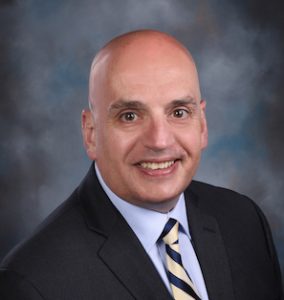
We discussed the needs of emergency physicians and our respective group practices. We described how the decrease in ED volumes was threatening the viability of staffing models. One key point emphasized was that a significant majority of emergency physicians are not directly employed by hospitals. While it is important for hospitals to receive financial support from efforts such as the CARES Act, direct and urgent financial help is needed for emergency physicians and our practices.
Explore This Issue
ACEP Now: Vol 39 – No 06 – June 2020Overall, the Virtual Hill Day was a success. Telling our stories directly to MOCs and Hill staff is invaluable. It helps them understand who we are and what we do. Sharing not just the statistics, but the personal experience of emergently intubating a patient with COVID-19 in respiratory distress makes the pandemic more real for MOCs. Sharing how that affects us as emergency physicians, and more importantly as people, humanizes us.
During these visits, perhaps more than ever, the MOCs and the Hill staffers we met expressed appreciation for what we do every day in caring for the nation. We asked that they channel that appreciation by supporting emergency physicians in their work in Congress. We asked that they advocate for direct, urgent, and significant financial support of the specialty of emergency medicine with the Trump administration and leadership of the Department of Health and Human Services so that we can continue to be the nation’s health care safety net on a 24-7-365 basis throughout and after the pandemic.
For those of us who participated in the Virtual Hill Day, we were not just telling our stories, but the stories of all emergency physicians who are the front line of the health care response to this pandemic. I would encourage all of you to find your advocacy voice and join us next year at the Leadership & Advocacy Conference. Or better yet, don’t wait until next year get involved. Join the 911 Network to stay updated and informed on federal and state issues. Contribute to NEMPAC now, as well, and help ACEP amplify your voice on the issues that matter most to emergency medicine.
How to Advocate For Emergency Medicine
by Robyn Levine, MD
The setting was not what we had planned. Instead of Capitol Hill, I sat at home on my couch with my iPhone on speaker. On the other end of the line was a group of local emergency physicians and our Rhode Island U.S. Senators and Representatives. Like many events during the COVID-19 pandemic, this year’s ACEP LAC took place virtually. Despite the new format, participating in the conference was eye-opening. Here are a few reflections I’d like to share:
- Get to know your elected officials. As a Florida native and relative newcomer to the small but mighty state of Rhode Island, I am continually surprised by how everyone here seems to know each other. I have now grown accustomed to caring for patients in the emergency department, only to later find out that they are my colleague’s friend, neighbor, or family member. Still, I was surprised to hear that many of the other physicians participating in our LAC group have longstanding relationships with U.S. Congress members and their staffers through their advocacy work over the years. These trusting relationships were key, allowing for mutual understanding as we discussed the challenges facing emergency physicians and all health care workers on the front lines of the COVID-19 pandemic. I am lucky to live and practice medicine in a small state and close-knit community where our voices can make a difference at the national level.
- Advocacy can feel uncomfortable. One of our group’s main aims was to urge our political leaders to continue to address critical deficits in the supply of PPE. My role was to share my perspective as a resident physician reusing disposable N95 masks over multiple shifts due to the national shortage. Despite a seemingly straightforward task, it was a challenge to speak with elected officials; being assertive about my experience was important in advocating for residents and what we are experiencing on the front lines. I prepared by thinking through the important aspects of the PPE shortage and writing down my message ahead of time. As the day went on, I realized that firsthand accounts are a powerful tool to help our representatives fully understand the urgency and scope of the issues. My perspective as a resident is a critical one to the conversation. Sharing personal stories is important, even when it does not come naturally and is a challenge for us to own our place as advocates.
- Organization is key. Thanks to the hard work of our local ACEP chapter and national leaders, our group approached LAC with a clear agenda and plan for discussing priority items in each meeting with elected officials. I listened as others on the calls cited relevant statistics and spoke knowledgeably about current bills related to the COVID-19 response. Developing these informed positions takes time and effort, and this conference demonstrated the importance of participating in and supporting organizations with the resources to advocate effectively on behalf of our specialty.
Overall, the LAC was a welcome opportunity to step back from the daily grind of clinical medicine and learn about the larger challenges facing emergency physicians. This year’s circumstances were unusual—but we made our voices heard, even from the comforts of our own homes.
Pages: 1 2 3 | Single Page






No Responses to “ACEP Virtual Day on the Hill: Advocating From the Front Line”